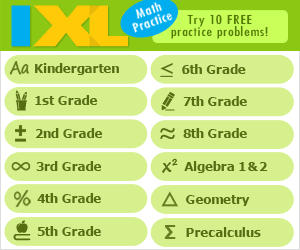SAT/ACT Vocabulary List for 07/22/2010
Here is today's word list:
- abrogate (v.): To abolish, repeal.
- adroit (adj.): Having skill in the use of the bodily or mental powers.
- Americanism (n.): A peculiar sense in which an English word or phrase is used in the United States.
- appease (v.): To soothe by quieting anger or indignation.;
- Augustinian (adj.): Pertaining to St. Augustine, his doctrines, or the religious orders called after him.
- bestrew (v.): To sprinkle or cover with things strewn.;
- bumper (n.): A cup or glass filled to the brim, especially one to be drunk as a toast or health.
- chasm (n.): A yawning hollow, as in the earth's surface.
- compliant (adj.): Yielding.
- consternation (n.): Panic.
- countryman (n.): A rustic.
- defendant (n.): A person against whom a suit is brought.
- despond (v.): To lose spirit, courage, or hope.
- disinterested (adj.): Impartial.
- dragoon (n.): In the British army, a cavalryman.;
- emphasis (n.): Any special impressiveness added to an utterance or act, or stress laid upon some word.
- eulogize (v.): To speak or write a laudation of a person's life or character.
- extinct (adj.): Being no longer in existence.
- flue (n.): A smoke-duct in a chimney.
- fuse (v.): To unite or blend as by melting together.
- gullible (adj.): Credulous.
- hydrous (adj.): Watery.
- importunate (adj.): Urgent in character, request, or demand.
- indulgence (n.): The yielding to inclination, passion, desire, or propensity in oneself or another.
- instigator (n.): One who incites to evil.
- iota (n.): A small or insignificant mark or part.
- languid (adj.): Relaxed.
- locative (adj.): Indicating place, or the place where or wherein an action occurs.
- massacre (n.): The unnecessary and indiscriminate killing of human beings.
- mischievous (adj.): Fond of tricks.
- naphtha (n.): A light, colorless, volatile, inflammable oil used as a solvent, as in manufacture of paints.
- nutritive (adj.): Having nutritious properties.
- ordinal (n.): That form of the numeral that shows the order of anything in a series, as first, second, third.
- paralyze (v.): To deprive of the power to act.
- perfidy (n.): Treachery.
- pique (v.): To excite a slight degree of anger in.;
- predatory (adj.): Prone to pillaging.
- profligacy (n.): Shameless viciousness.
- quadruple (v.): To multiply by four.
- redolence (n.): Smelling sweet and agreeable.
- repugnance (n.): Thorough dislike.
- salutary (adj.): Beneficial.
- sergeant-at-arms (n.): An executive officer in legislative bodies who enforces the orders of the presiding officer.
- squabble (v.): To quarrel.
- superintendence (n.): Direction and management.
- terrify (v.): To fill with extreme fear.
- trestle (n.): An open braced framework for supporting the horizontal stringers of a railway-bridge.
- upbraid (v.): To reproach as deserving blame.
- virtu (n.): Rare, curious, or beautiful quality.
How To Master These Words
- Create or buy a notebook. It can be named SAT/ACT Vocabulary Notebook or you can create your own name. You will be keeping your weekly words, definitions and assignments in this notebook.
- Write the words and definitions in your vocabulary notebook.
- Create your own sentence using each word and write this in your vocabulary notebook.
- Make Flashcards - Write the word on one side of an index card and put the definition and a sentence on the opposite side. You can find ideas for making flashcards on the Internet by clicking on the link: Resources showing how to create your own flashcards.
- Online Flashcard Game: Go to this site. lingro.com. Click on "wordlist" at the top of the page. Then click on "create new wordlist." Enter your word list for the week. When finished, click on "games" at the top of the page. Then click on "flashcards" and select your list. See if you can name the definition on each word before clicking on it to see the answer.
- Use this dictionary link to check the pronounciation of each word. Type each word in the box on the left, then click the sound icon to listen.
- Use TokBox to practice saying the words aloud. Register to get a free account. Click on "Send a Video Message." A box will open to set up your computer microphone and camera. Click "allow". Press the red "Record" button to begin. Press the "Stop" button when you are finished. Once you have practiced saying the words and recording it, send the video you created to your email account and listen to your video message. Send it to your parents' email account also to show them what you are learning.
- Create your own crossword puzzle. Click on this link. Enter your words and your clues (definition), then click "Create Crossword Now." A new web page will appear. You can put a title on your puzzle if you wish, then click "Create Crossword." Print this out and complete the puzzle. Insert the completed work in your vocabulary notebook.
Search Internet4Classrooms

Custom Search






